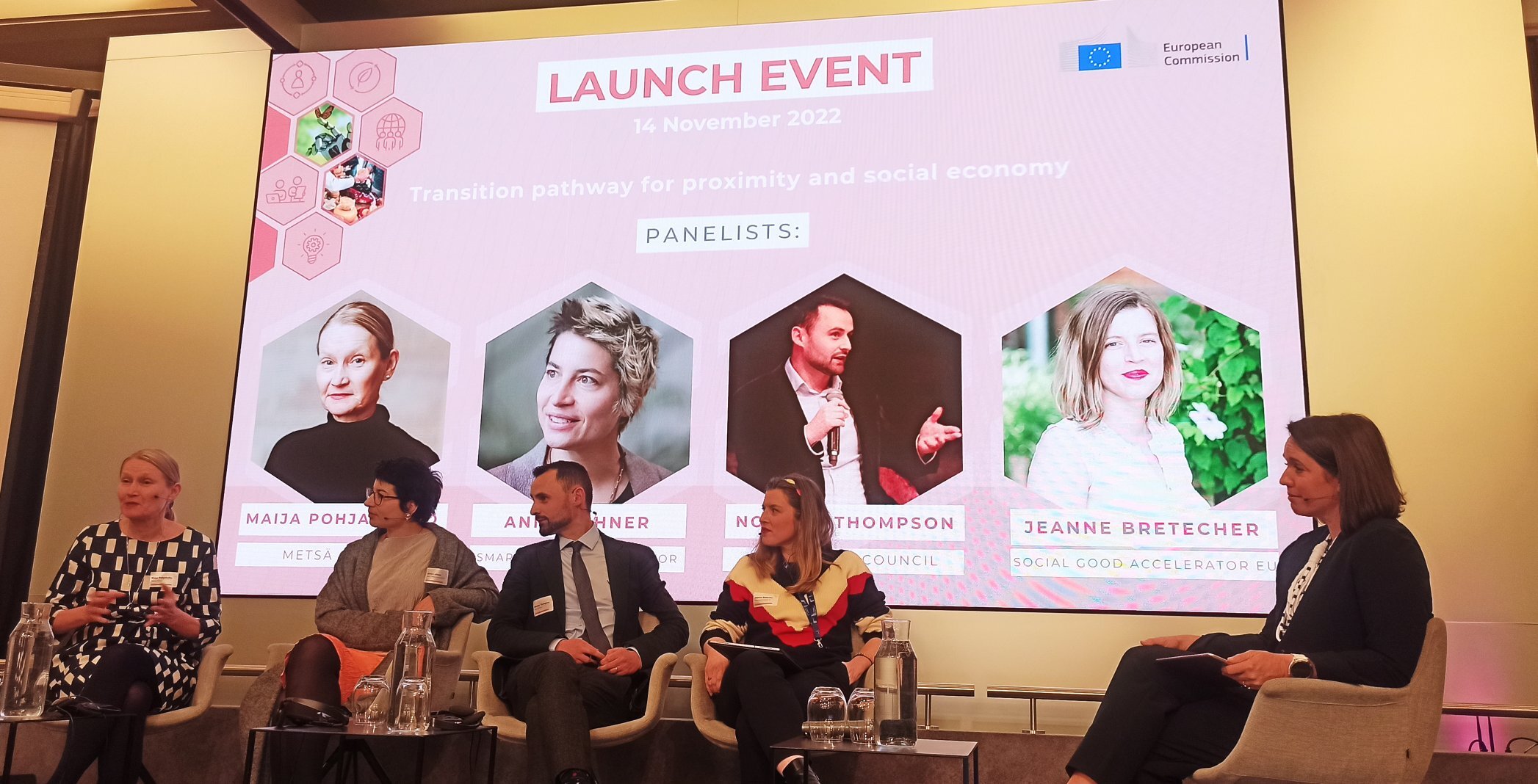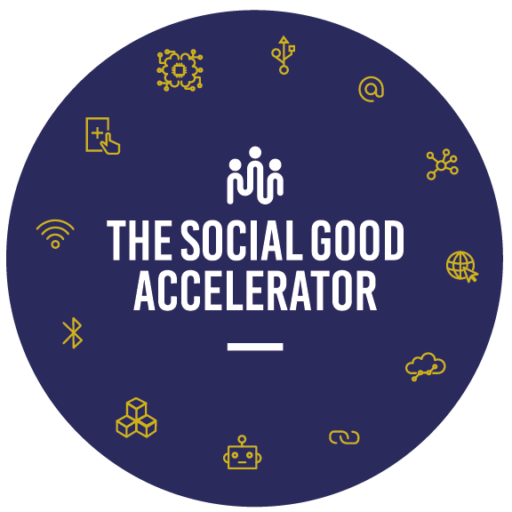Social Good Accelerator commitments as part of the Transition Pathways: Building digital skills through and in the social economy
The Transition Pathways Roadmap is the result of an intense co-construction process that took place between December 2021 and March 2022. SOGA was mobilised as a European expert on the digital issues of the social economy to the European Commission. The Transition Pathways proposes avenues of cooperation for the digital and green transition of the industrial and social economy ecosystem. It calls for collective commitments to converge in the indicated directions. Following its official presentation on November 14th, in which Jeanne Bretécher, President of SOGA, took part, we have responded to the European Commission’s call for commitments in order to co-implement, enhance and support the public and private actors’ commitments for concrete actions to move towards the green and digital transition of the ecosystem.

Transition pathway launch event, Monday 14 November 2022, Brussels.
Photo credit: Social Economy Europe
The Social Good Accelerator (SOGA) is a European Think and Do Tank born in 2017 from a double observation. The digital transition of social economy (SE) organisations is not sufficiently taken into account and alternative digital models of the social economy are struggling to emerge. Digital models of the social economy represent a third way for European innovation and competitiveness focused on democratic values, social justice and the environment.
We bring together more than 70 members and networks, operational organisations and engaged citizens – to work on scaling up and upscaling the social economy through digital levers. We intend to empower social utility organisations by enabling them to acquire new technological skills, advocate and conduct collaborative research.
SOGA is convinced that only by strengthening the digital skills of the social economy will these organisations jump on the digital transition bandwagon and use digital tools to defend their values and alternative digital models based on the digital commons.
For these reasons, SOGA is committed to strengthening the digital skills of the social economy in the European Union through its “Digital Skills” programme, which to date contains 2 projects: the European project Social Tech Academy and the national project Social_tEchSS.
The Social Tech Academy: a work of acculturation and development of the digital skills of the social economy
The Social Tech Academy is a European project funded by Erasmus+. In concrete terms, from the end of 2023 it will be the resource platform for digital jobs in the social economy in the European Union. This platform will be of interest to young graduates, people undergoing professional retraining, recruiters and trainers in the social economy.
In order to promote the development of digital skills in the social economy, we are going to develop about 20 online courses on specific digital themes, offering dedicated content adapted to social economy actors, with for each one a theoretical part, a practical case, a toolbox and a reference on the pre-existing model, in French, English, Italian and Spanish.
We will also develop 20 job descriptions and 20 interviews with professionals.
We will train between 80 and 100 HE trainers by offering 4 days of training in the 4 languages of the project (French, English, Italian and Spanish). The objective of the training is to give the trainers the capacity to teach the skills and professions of Social Tech to job seekers, employees of the social economy but also to students of specialised courses (economy and social action in particular) and to create a continuous learning community.
We are also committed to developing an open database that lists the actors of the digital transition of social economy actors in the European Union, in the form of a database (website and application). In this respect, we already have a base with our Social Tech Atlas project which gathers +1000 European social economy organisations that offer technological solutions or services or support social economy organisations in their digital transformation.
The Social_tEchSS project: work on digital skills frameworks
The Social_techSS project is a project funded by the Fondation Crédit Coopératif and the Agence nationale de cohésion des territoires (France). The Social_techSS project is an action research project that aims to initiate and co-construct reference systems of skills and training in basic digital skills, adapted to the professional situations of employees in the HE sector. It involves the expertise and support of digital mediation networks.
With this project, we are committed to
– Equip social economy employees with digital mediation reference systems by bringing social economy workers up to speed on the digital issues related to their audiences and their professional practices, enabling them to accompany their users towards digital autonomy.
– Enrich the “transversal skills” reference systems of digital mediation and the social economy by exploring new professional situations and new audiences specific to the social economy.
– Disseminate and develop the digital tools and practices of digital mediation in the social economy
– Convince decision-makers to invest more in the digital skills of the social economy.
We are targeting 8 branches of the social economy in France, all of which have a group of employees who work in contact with these vulnerable groups. It is on these that we wish to act. In fact, there is a real need to train SSE professionals in the use of digital tools, in identifying digital vulnerabilities and in supporting or even redirecting these different groups towards digital mediators.
New projects in preparation to strengthen the digital skills of the social economy in the EU
We are preparing two Erasmus+ projects with our partners in the framework of cooperation partnerships, concerning adult education. The first project we are going to submit responds to a need to increase the skills of the social economy on the subject of Open Data. With our European Data School adapted to the social economy, we hope to be able to offer in 2024 a set of complete courses designed without knowledge requirements as well as data expeditions to reuse the data available on a given subject and train social economy organisations in handling public data.
The digital mediation campus – our second project with our partner La MedNum – will focus on the actors of digital mediation, actors scattered in the social economy and in several branches of civil society. We want to reference the best reference systems and training practices in Europe in the field of digital mediation and organise a one-week training cycle for 8 European countries. It will also be a question of building an advocacy in order to better value these actors in the European Union and to include them in the elaboration of European public policies of digital inclusion. Thus, we aim to act to improve the reference and training framework on digital skills of the social economy through digital mediators.

